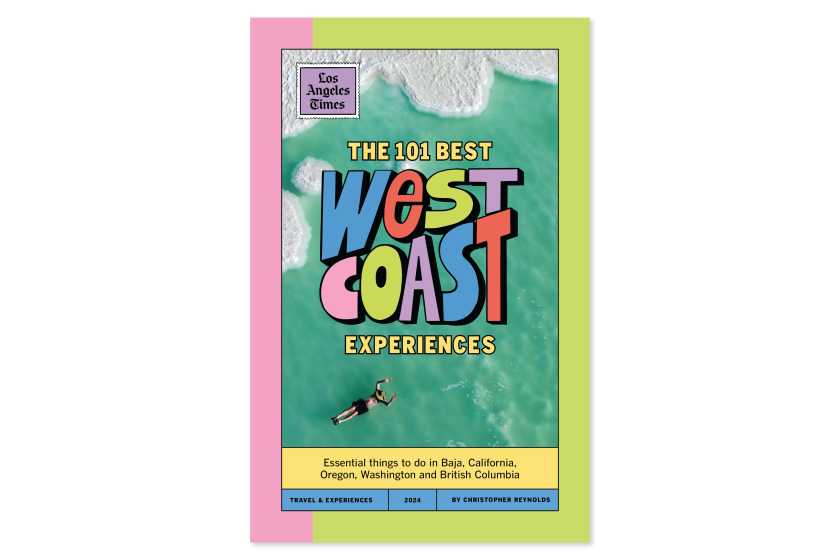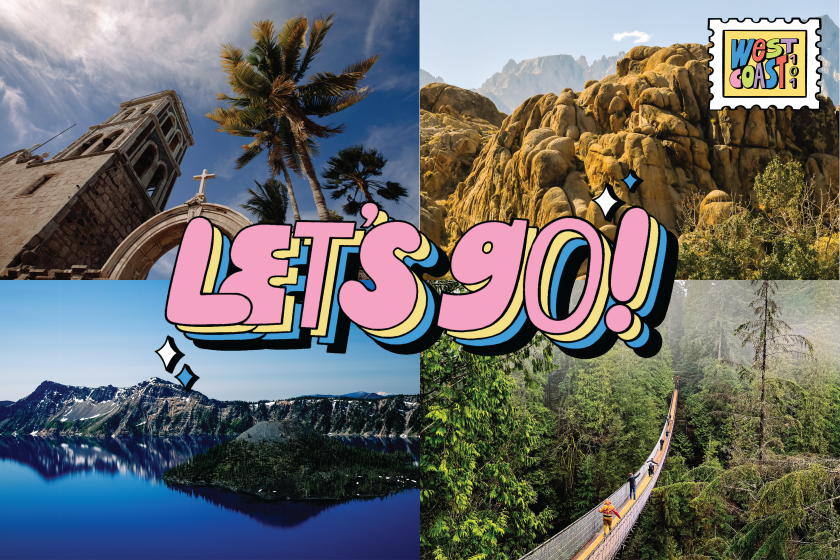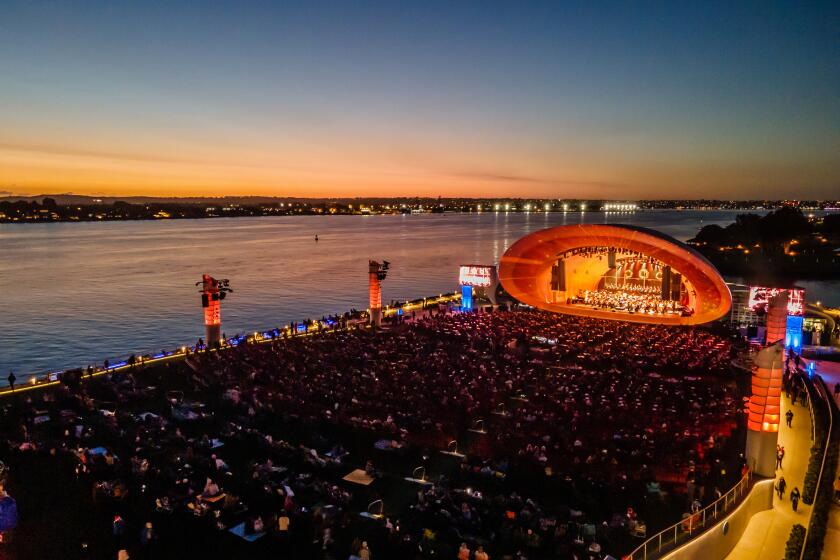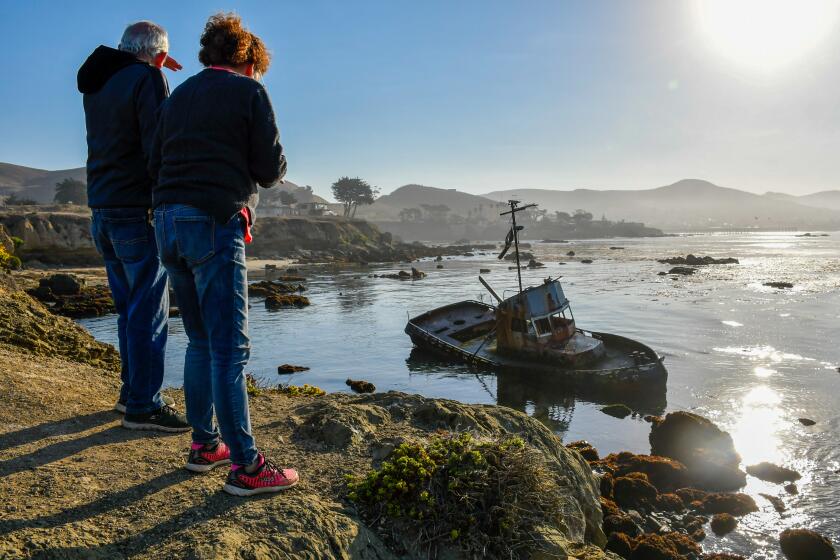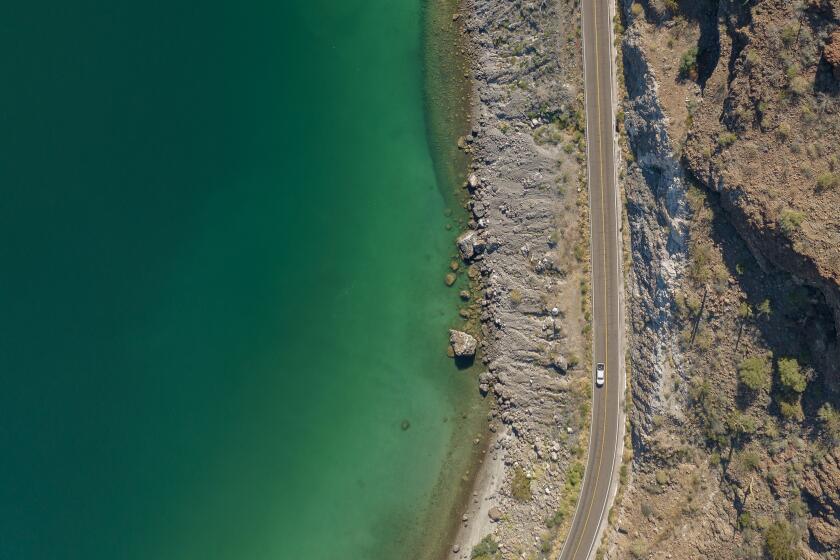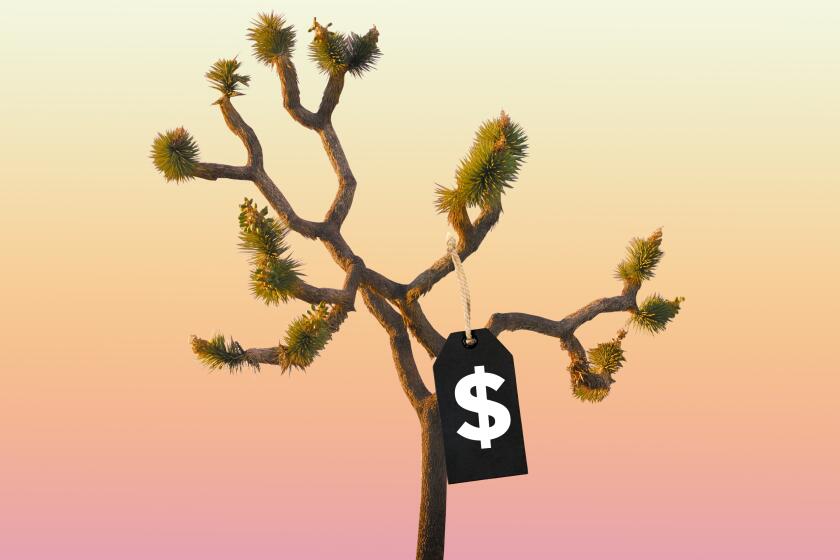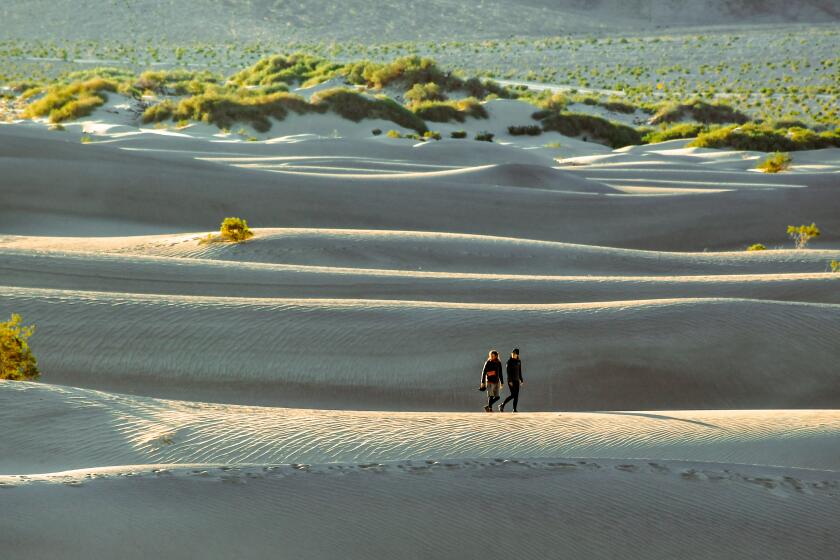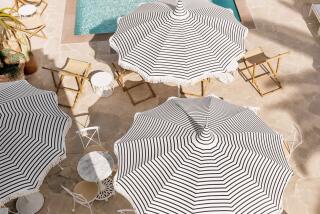(Lettering and animation by Jacky Sheridan/For The Times; video editing by Li Anne Liew/For The Times; Storyblocks)
- Share via
I couldn’t help it. In the course of scouting out great adventures for West Coast 101 — our new guide to essential destinations in Baja, California, Oregon, Washington and British Columbia — I found myself compiling a personal top 10.
I’ll get to that list shortly. But first, an honorable mention.
Even if you’ve never seen “The Big Lebowski,” you’ve probably heard someone mention the rug that tied Lebowski’s room together. Well, Harris Ranch does that for California.
This I-5 stop for food, gas, lodging and bathrooms (not necessarily in that order) might not make anyone’s bucket list. And I’ll admit that if the wind blows the wrong way, it smells like cattle. But if you’re driving north-south through the San Joaquin Valley, which just about every Californian does sooner or later, you’re going to need to stop somewhere.
Harris Ranch faithfully awaits, 184 miles south of San Francisco and 200 miles north of L.A. City Hall, the pride of Coalinga. Over the years, I’ve pumped gas at its Shell station, slept in its comfortable hotel (no resort fee or room tax), conducted interviews in its Horseshoe Lounge, lingered over breakfast in its Ranch Kitchen (excellent) and grabbed a sandwich from its Express BBQ (adequate). I’ve even bought bonsai from Hyo Kim, who peddles delicately coiffed junipers, olive and pine trees ($25-$500) from a stand on the dirt shoulder across the street.
I’m not saying cattle ranches are good for the planet’s future — definitely not. But I’m just realizing that for about 45 years now, Harris Ranch has been the rug tying together my adventures in the vast living room that is our West Coast.
Your rug might be different. After all, these lists are subjective.
Of our 101 best West Coast experiences, these 10 resonate most for me. I’d recommend them to just about any California newbie and I’d grab at a chance to visit them again — some for basic beauty, others for the stories they tell or the memories they tie together.
Essential things to do, see and eat right now in California, Oregon, Washington, the Baja Peninsula and British Columbia. Ready to explore?
10. Rady Shell, San Diego
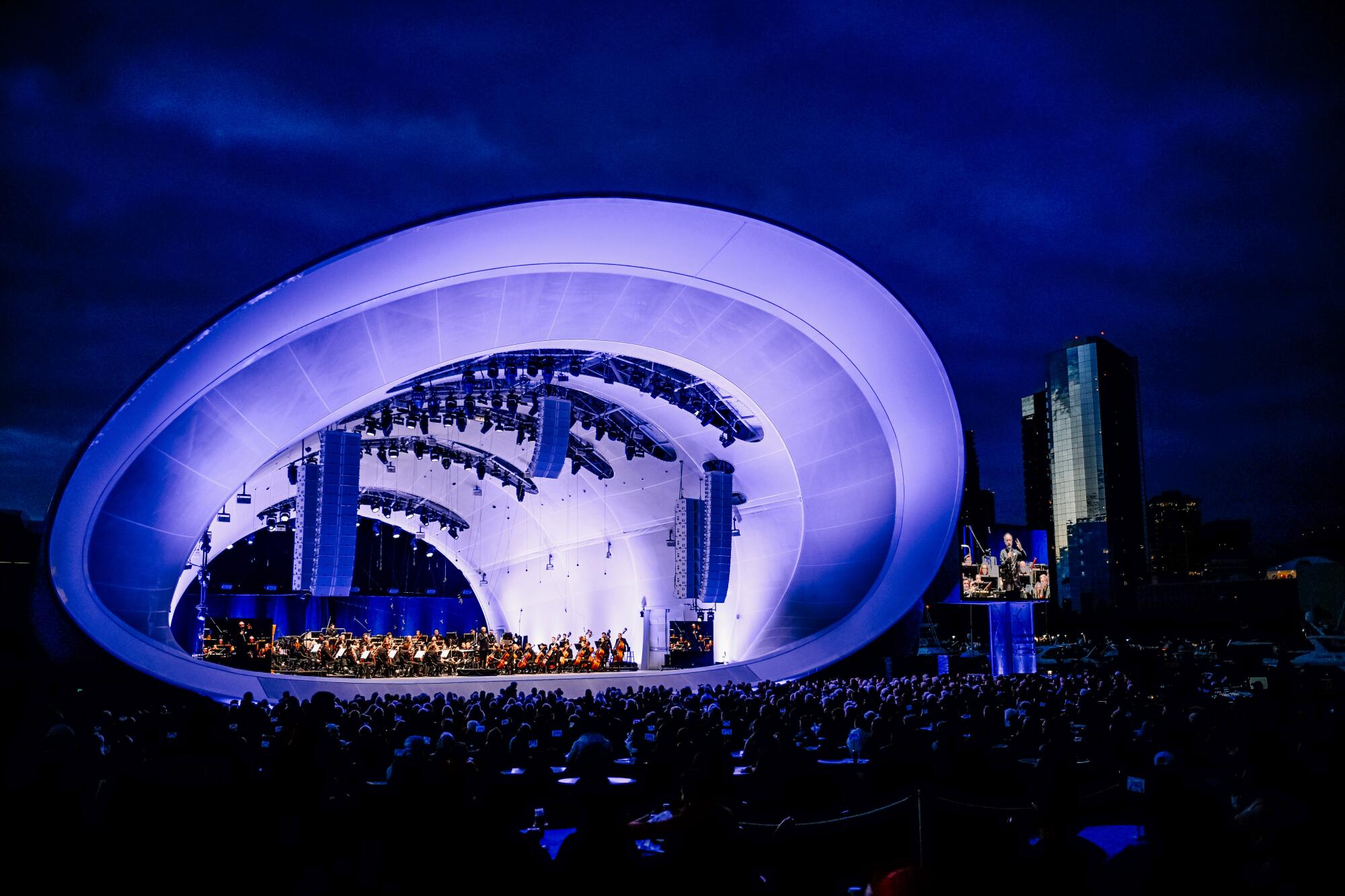

I have a hard time imagining a more pleasant place to see an outdoor concert. Well, maybe the Red Rocks Amphitheater outside Denver. But on the West Coast? I’ll take this sleek bayside shell in downtown San Diego. And I’ll try not to be resentful that nobody thought of this while I lived down there.
The Rady Shell at Jacobs Park is now in its first summer season. See a show and make a weekend out of it.
9. Deetjen’s Big Sur Inn
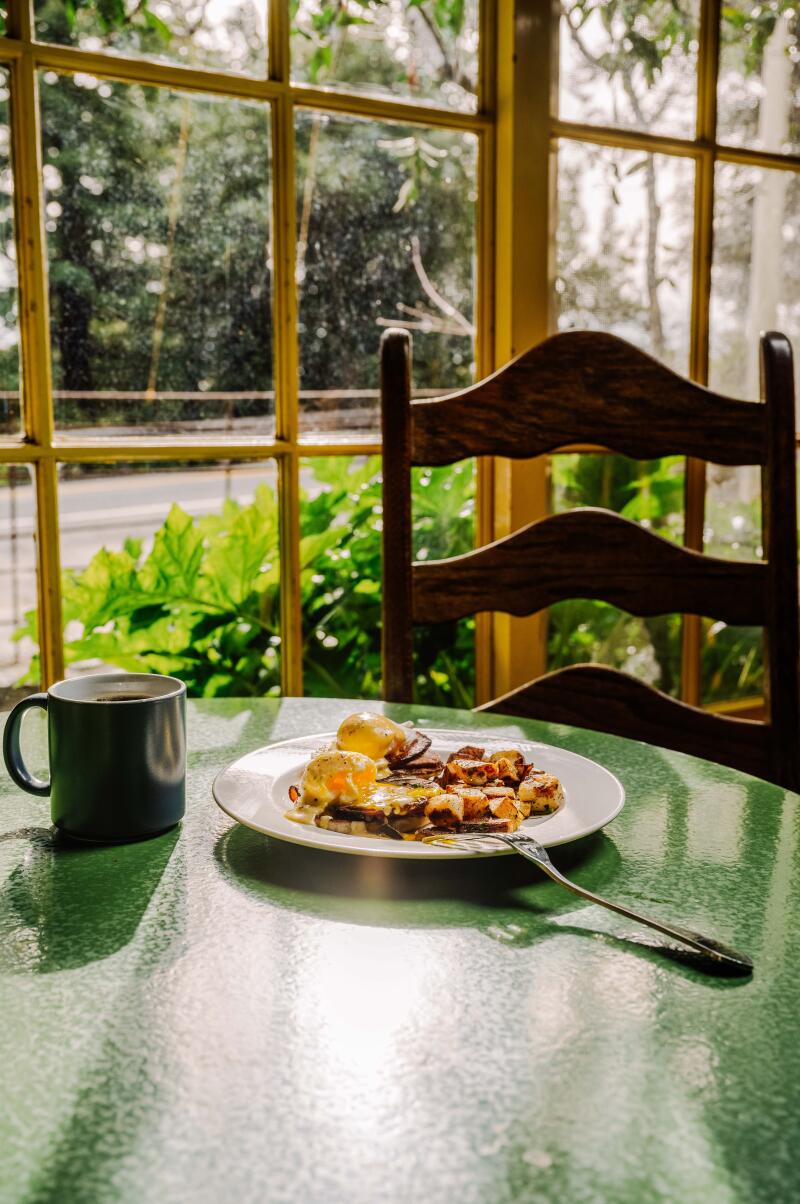
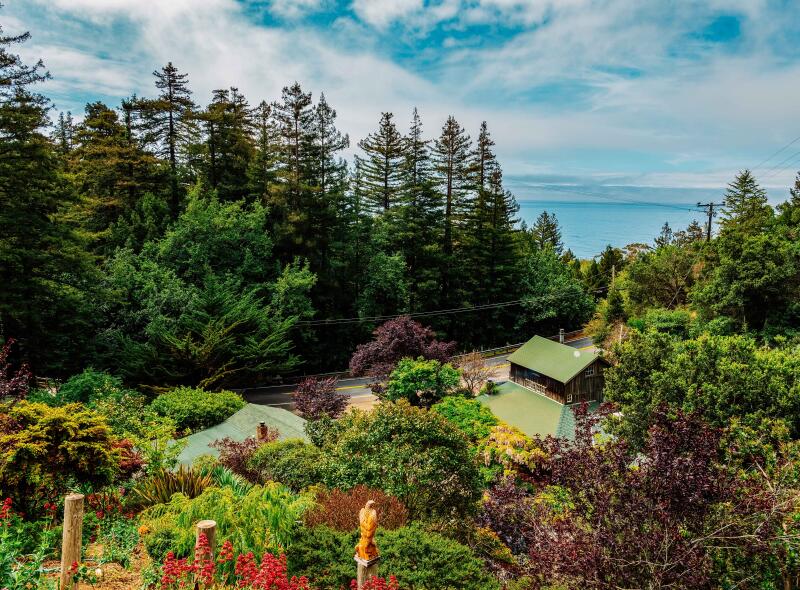
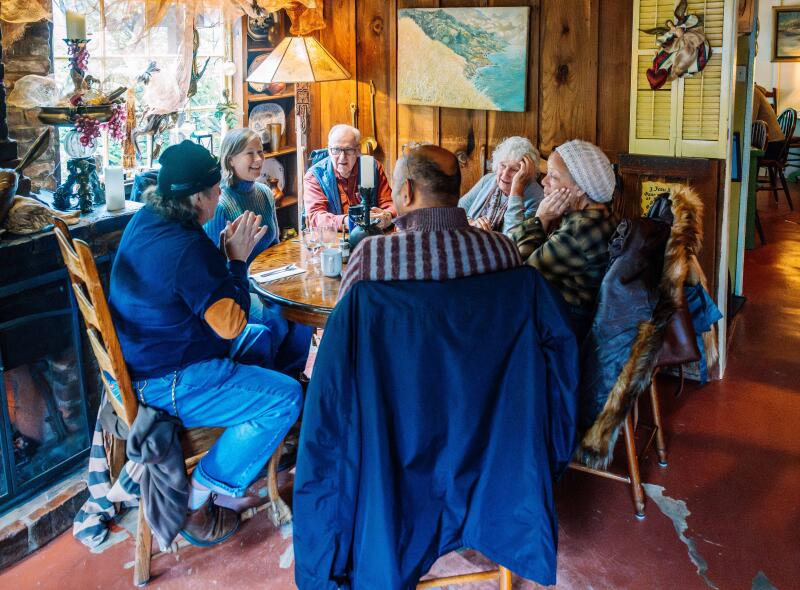
Deetjen’s Big Sur Inn in Santa Cruz, Calif., Tuesday, April 19, 2022 in Santa Cruz, Calif., Tuesday, Jan. 3, 2023. (Nic Coury/For The Times) Deetjen’s Big Sur Inn in Santa Cruz, Calif., Tuesday, April 19, 2022. (Nic Coury/For The Times) Deetjen’s Big Sur Inn in Santa Cruz, Calif., Tuesday, April 19, 2022. (Nic Coury/For The Times)

What are we going to do about Highway 1? Since that coast road was built on the slopes of Big Sur in the 1930s, we’ve treasured it. But as any acrophobe, geologist or engineer could tell you, those slopes crumble and slide relentlessly. Year after year, Caltrans moves mountains to keep that two-lane road navigable. Then comes another slide. Since January 2023 it’s been impossible to drive from San Simeon to Big Sur via the coastal route. (Caltrans announced partial reopening May 16. Check before you go. ) Whenever I worry about the highway, I think of Deetjen’s, which is basically a roadside time capsule clad in weathered wood. It opened about the time the highway did and won over generations of road-trippers with its rustic rooms and restaurant. Before Helmuth Deetjen died in 1972, he set up a nonprofit organization to keep the place running in old-school fashion. I’ve been stopping there since the 1980s. You have to call to make a reservation. And when you get there, you have to expect paper-thin walls along with the Norwegian woodwork, the crackle of the fireplace and the portrait of Deetjen on the wall. It’s a priceless place. And Nepenthe and the Henry Miller Memorial Library are just down the road. We just can’t take Deetjen’s or that road for granted.
Even you’ve already done the most obvious attractions — Hearst Castle in San Simeon, for instance — why not spend more time exploring roadside nooks and ocean-adjacent crannies along Highway 1?
8. Yosemite Valley
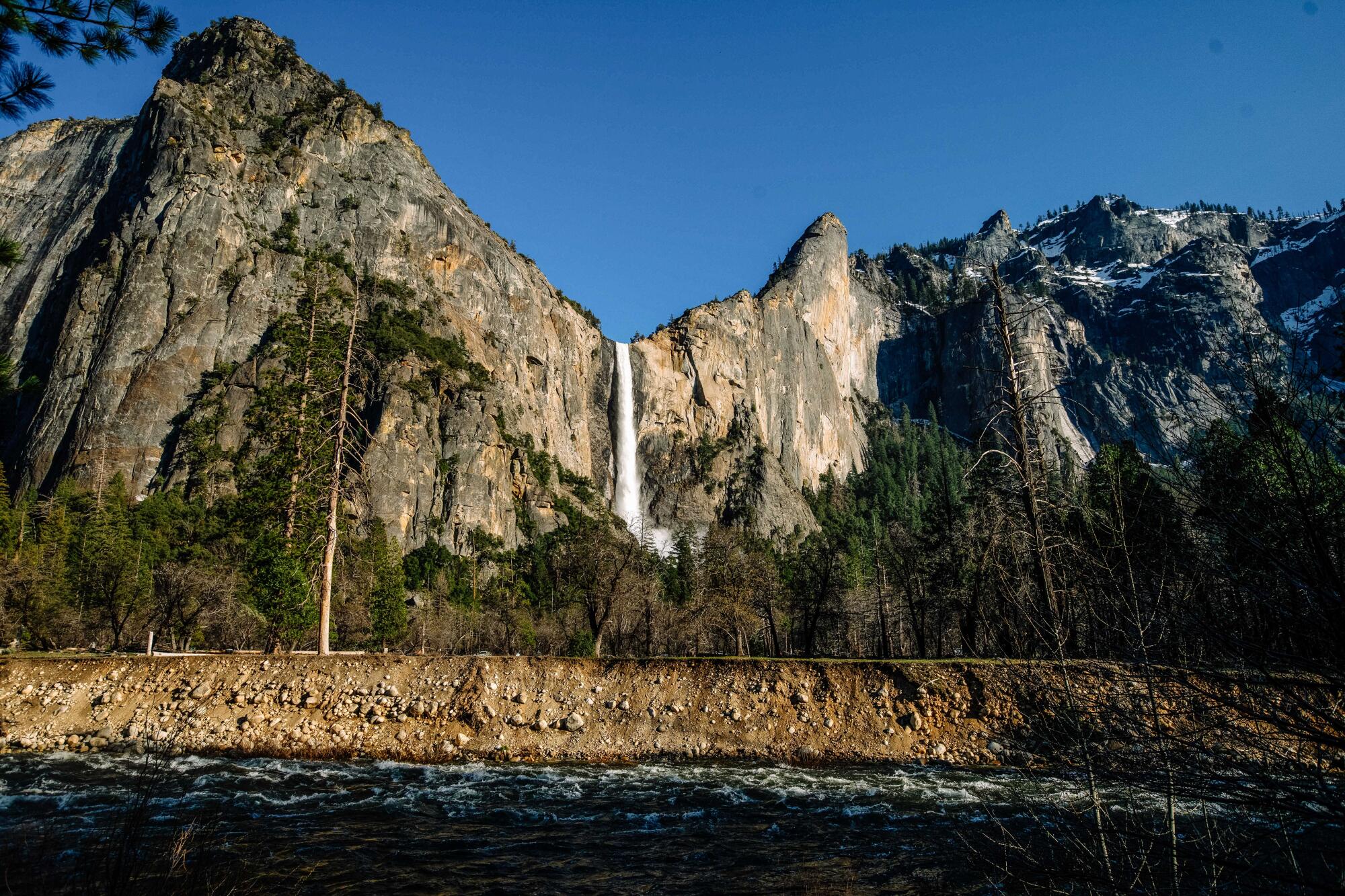

Does this need explaining? Probably not. If you’re arriving from the south, you emerge from the long, dark Wawona Tunnel to see El Capitan and Half Dome looming above a green, wet world of its own. Waterfalls roar left and right. The valley stretches for seven miles, framed by granite walls that Ansel Adams had to shoot and Alex Honnold had to climb. The Merced River meanders through. Even if you don’t have $600 to spend a night in the Ahwahnee Hotel, you can pop by for a snack, gaze up at painted rafters that go back to 1927 and warm yourself by one of the big fireplaces.
7. Venice Beach
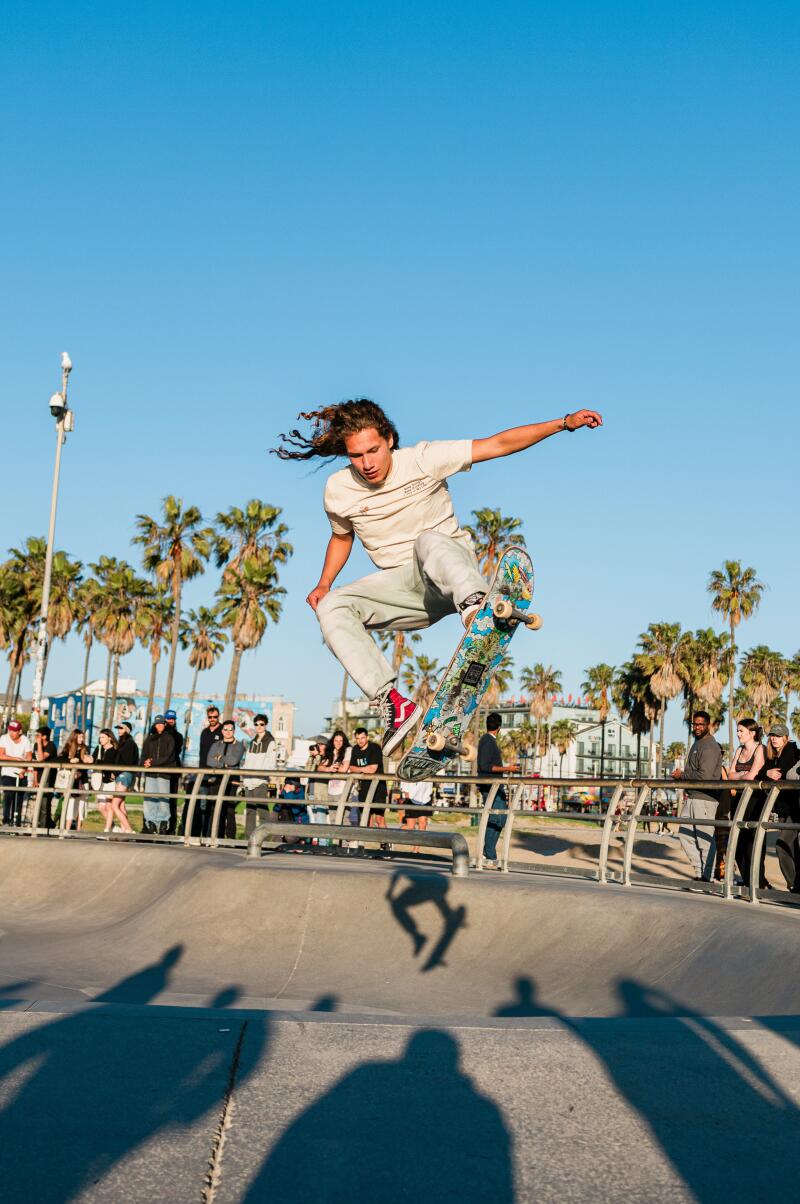
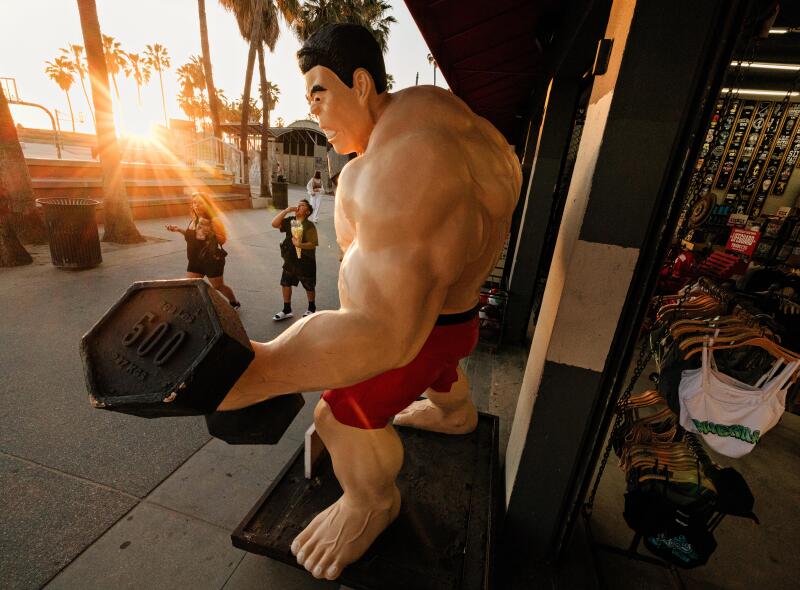
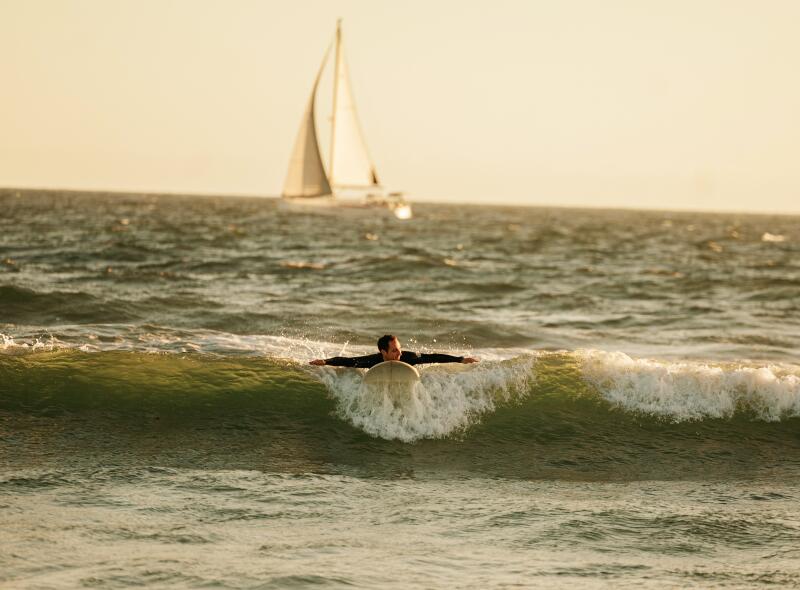
Venice, CA - April 03: A man throughs a trick at the skate park at Venice Beach on Wednesday, April 3, 2024 in Venice, CA. (Jason Armond / Los Angeles Times) (Jason Armond/Los Angeles Times) Venice, CA - April 03: People enjoy a day at Venice Beach on Wednesday, April 3, 2024 in Venice, CA. (Jason Armond / Los Angeles Times) (Jason Armond/Los Angeles Times) Venice, CA - April 03: A man surfs at Venice Beach on Wednesday, April 3, 2024 in Venice, CA. (Jason Armond / Los Angeles Times) (Jason Armond/Los Angeles Times)

Yeah, I know. There’s plenty to lament in Venice. But when you hit that beach at the right time on the right day, it feels so emblematic of Southern California. On my last visit, the sun was just setting. My wife, Mary Frances, and I checked out the skateboarders, chatted with a few artists who were selling work along the sidewalk and did a double take at the Shul on the Beach (a.k.a. Pacific Jewish Center), an Orthodox synagogue where worshipers were just gathering for a Friday night Shabbat meal.
6. The whales of Baja’s lagoons
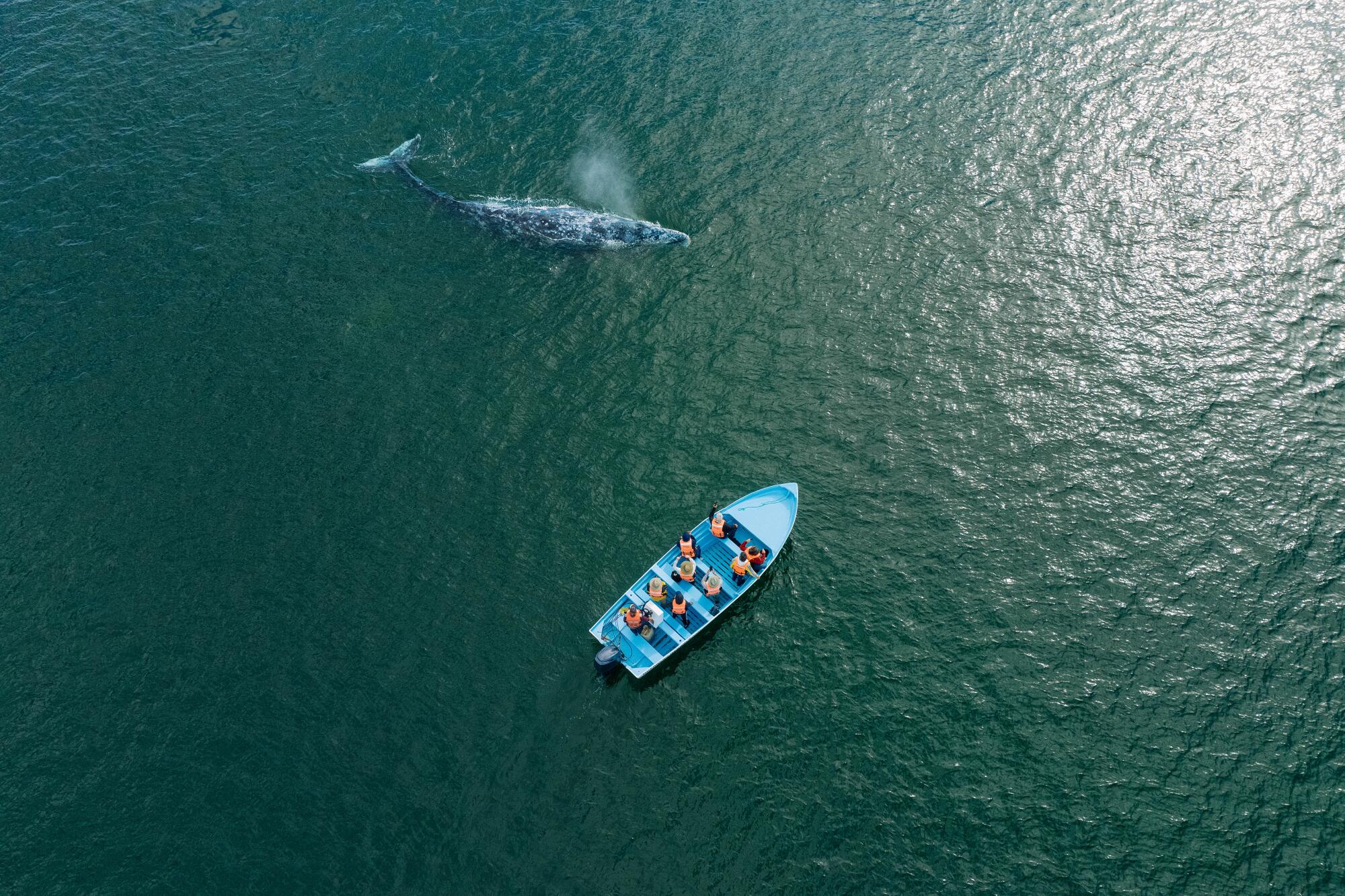
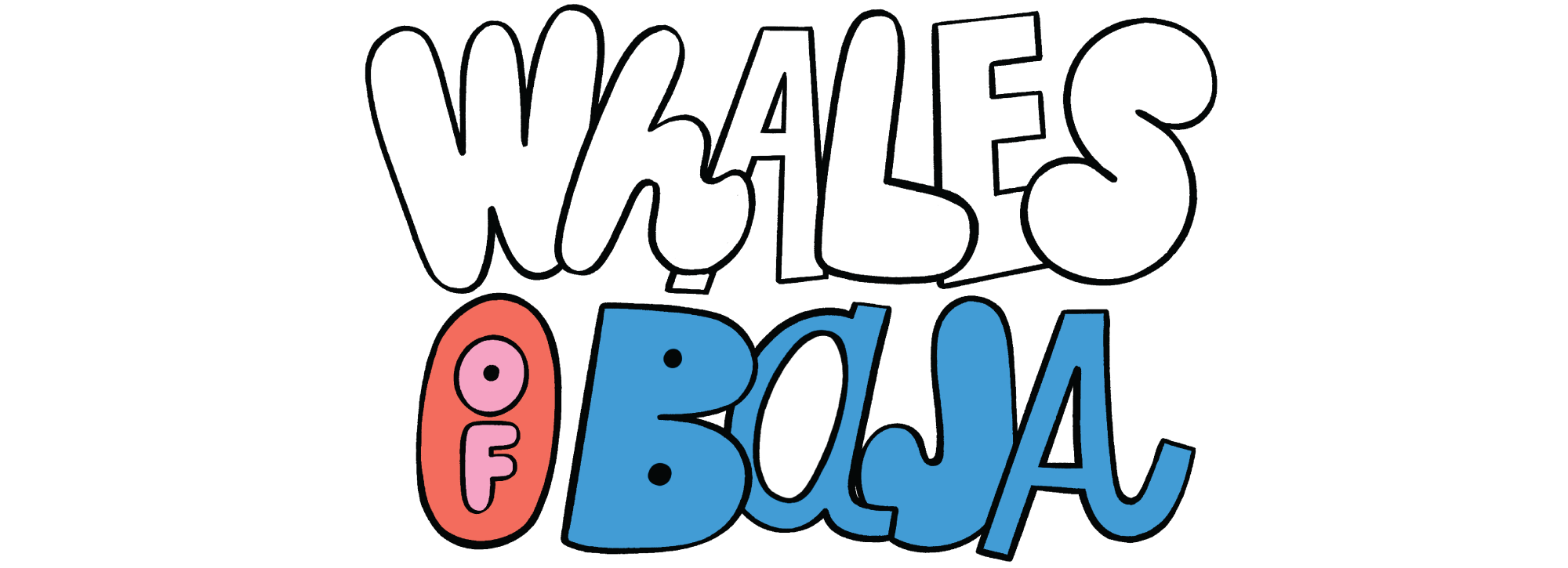
It’s one thing to watch migrating gray whales off the Southern California coast, standing at the rail of a big boat, looking for spouts in the distance and perhaps drawing within 100 yards. It’s something else when you’re in a panga on the waters of a southern Baja lagoon — usually Ojo de Liebre (Scammon’s) or San Ignacio. These immense creatures, the cows and and the calves, get so close sometimes, it feels intimate. And maybe a little scary. The adults weigh up to 90,000 pounds.
On a drive down the Baja peninsula’s Highway 1, travel writer Christopher Reynolds finds baby whales, a pond to float in and a new generation of adventurers.
5. Ferry Building and waterfront San Francisco
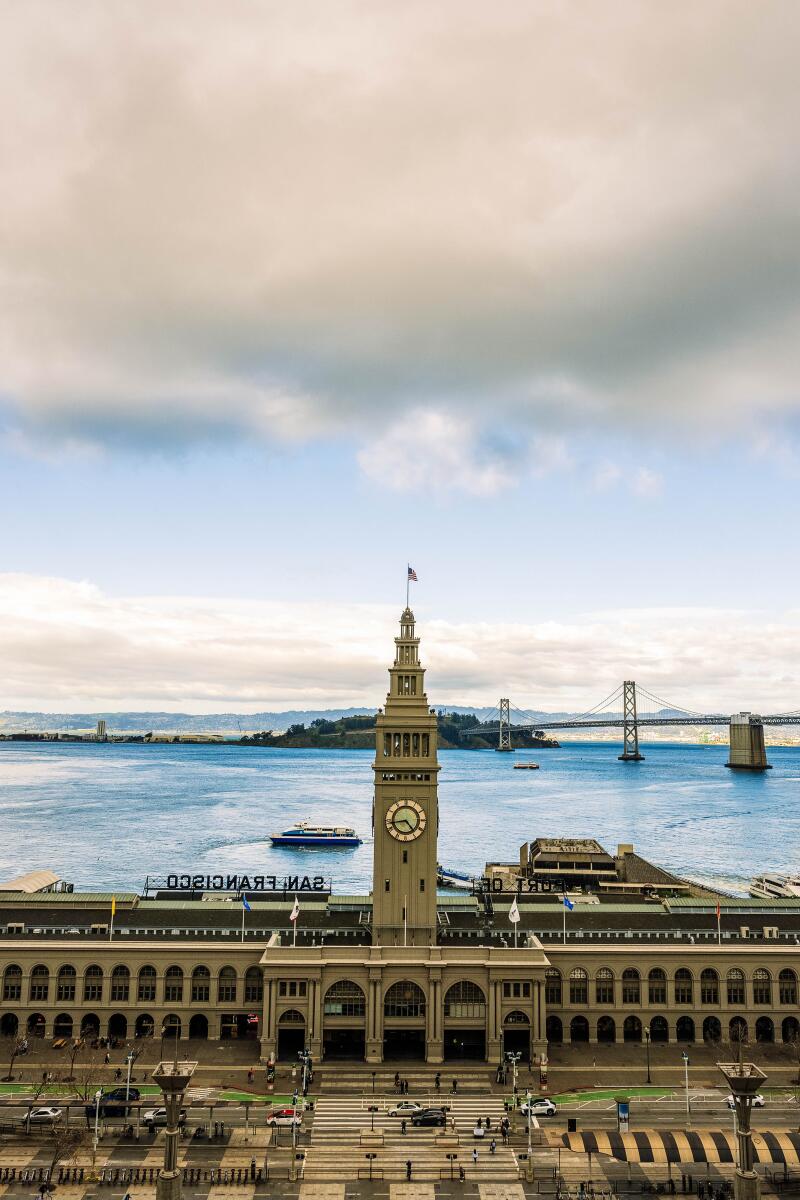
The Ferry Building in San Francisco, Calif., Friday, April 12, 2024. (Nic Coury / For The Times)
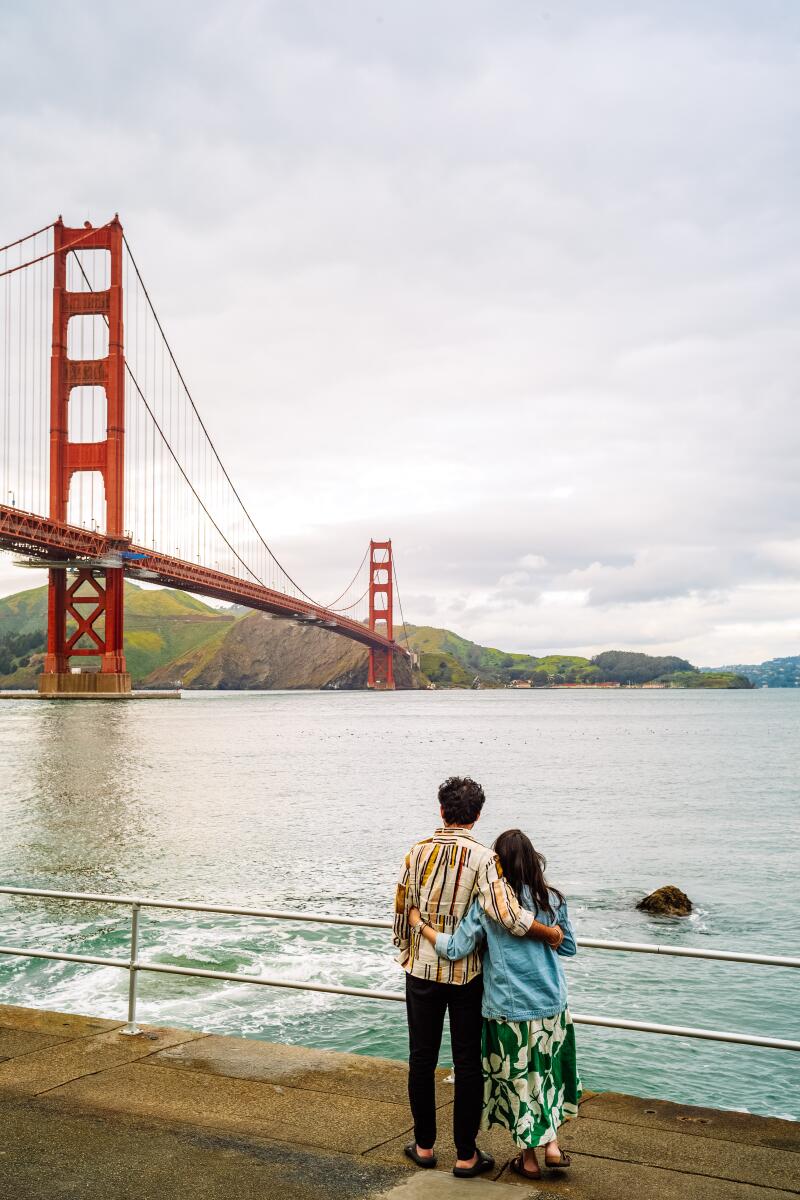
A couple looks at the Golden Gate Bridge from Fort Point in San Francisco. (Nic Coury / For The Times)

I’m trying to think of a more successful architectural resurrection than San Francisco’s Ferry Building. And failing. Picture that 1898 waterfront building in the 1920s, when there was no Bay Bridge and no Golden Gate Bridge and up to 50,000 people per day were commuting by ferry. The Ferry Building at the foot of Market Street was the center of the Bay Area’s nervous system. Then the bridges went up, commuters abandoned the ferries, the building was rehabbed into ugly offices and decades passed. Finally, in the aftermath of the 1989 Loma Prieta quake, San Francisco leaders launched a plan to revive the building. It reopened in 2003 as a foodie-oriented restaurant and retail space, a thousand times more interesting to me than the souvenir shops of Fisherman’s Wharf and Pier 39 (although at least you get the sight and sound of sea lions there). Apart from the food, it’s got great views of the Bay Bridge. (And with luck, that bridge’s nightly light show, which went dark last year, will resume in early 2025.) I think of the Ferry Building and the Golden Gate Bridge as the bookends of the waterfront.
4. Hidden Valley, Joshua Tree National Park
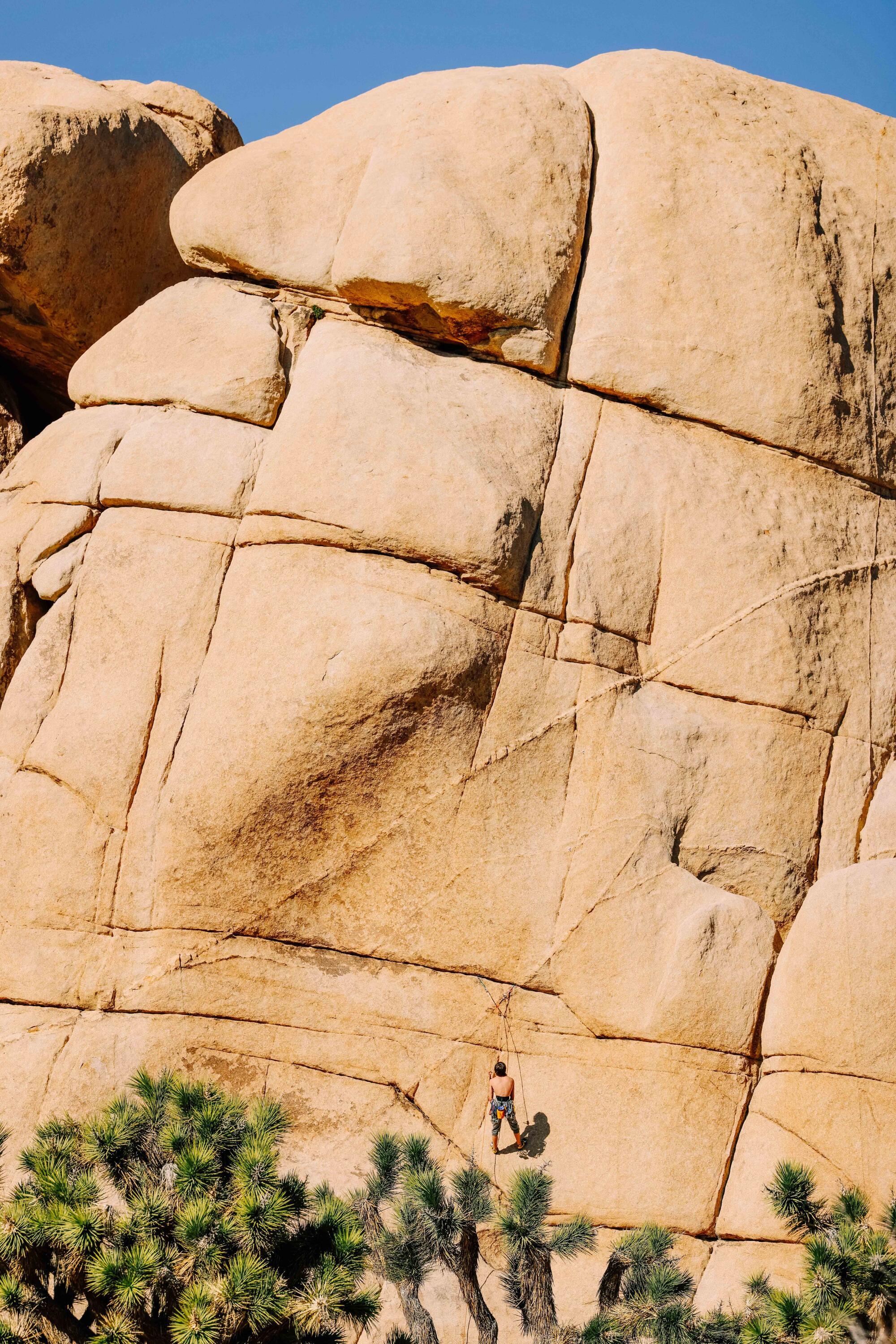

I’m not a rock climber or a boulderer. But I’m a sucker for sunrises and sunsets in the desert. And when that golden-hour light hits the jumbled boulders in Hidden Valley, it’s hard to resist.
The high desert may have gone upscale, but don’t worry — it’s still funky.
3. Pike Place Market, Seattle
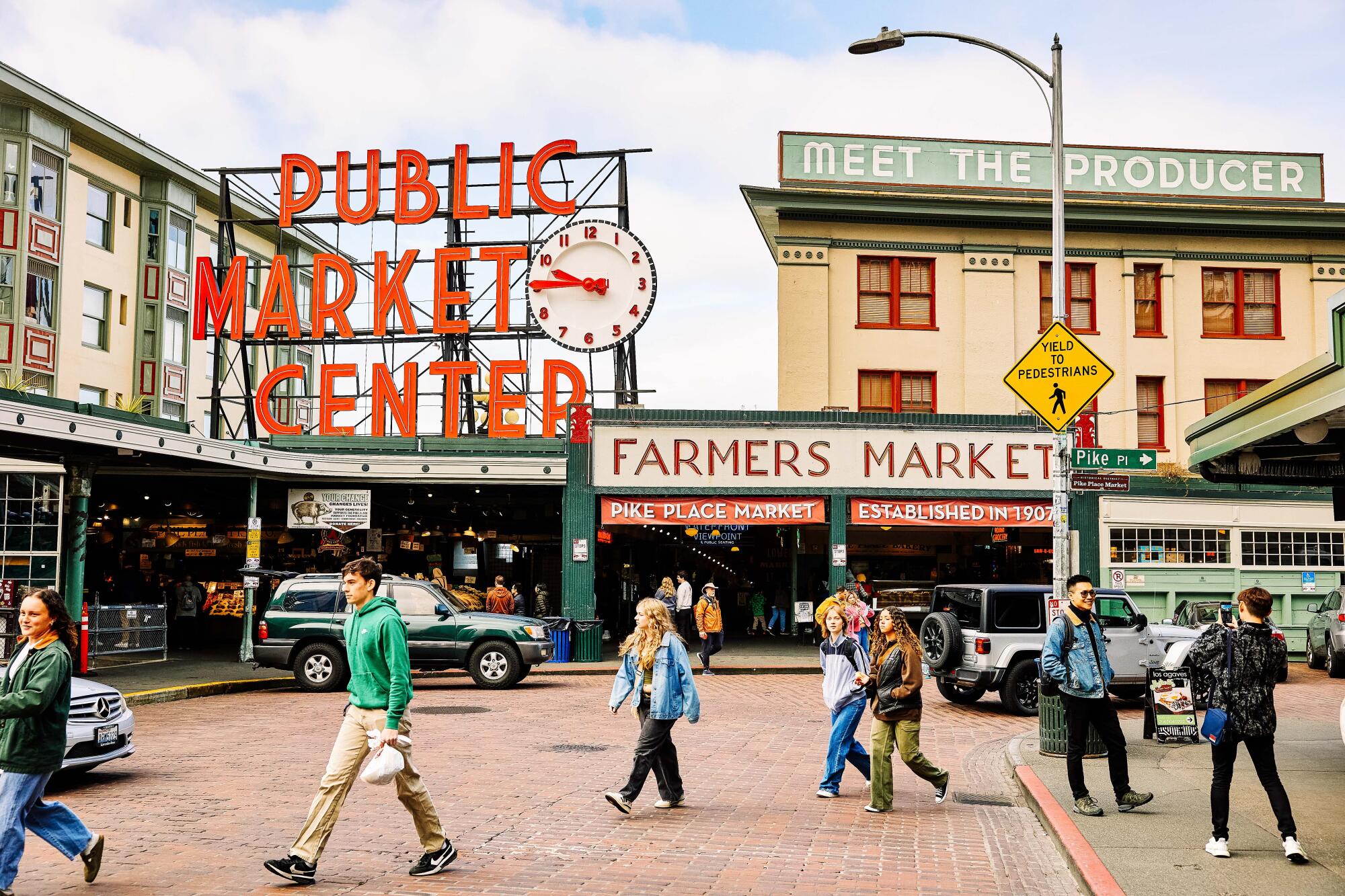

This is always the first place I want to go in Seattle, a spot where people, colors, flavors and scents all come together. I walk past the mirrored bar of the Athenian restaurant, where my buddy Rick and I had beers in 1986, my first time in town. I go down below to make sure the bubble-gum wall is still in place. I mourn at the spot where the newsstand used to be. I kick myself for failing to buy an incredibly cool cigar-box guitar from the Soul Cat Guitar guy when I had the chance. (I thought I’d have another chance at his market stall when I visited in January, but he wasn’t there that day.) I listen to buskers and eat unhealthy snacks. I stick my head in the anarchist collective bookshop (Left Bank Books), which has somehow lasted 51 years. And like every other tourist, I linger near the fishmongers so I can see them flinging fish and hollering at each other.
2. Capilano Bridge Suspension Park, Vancouver
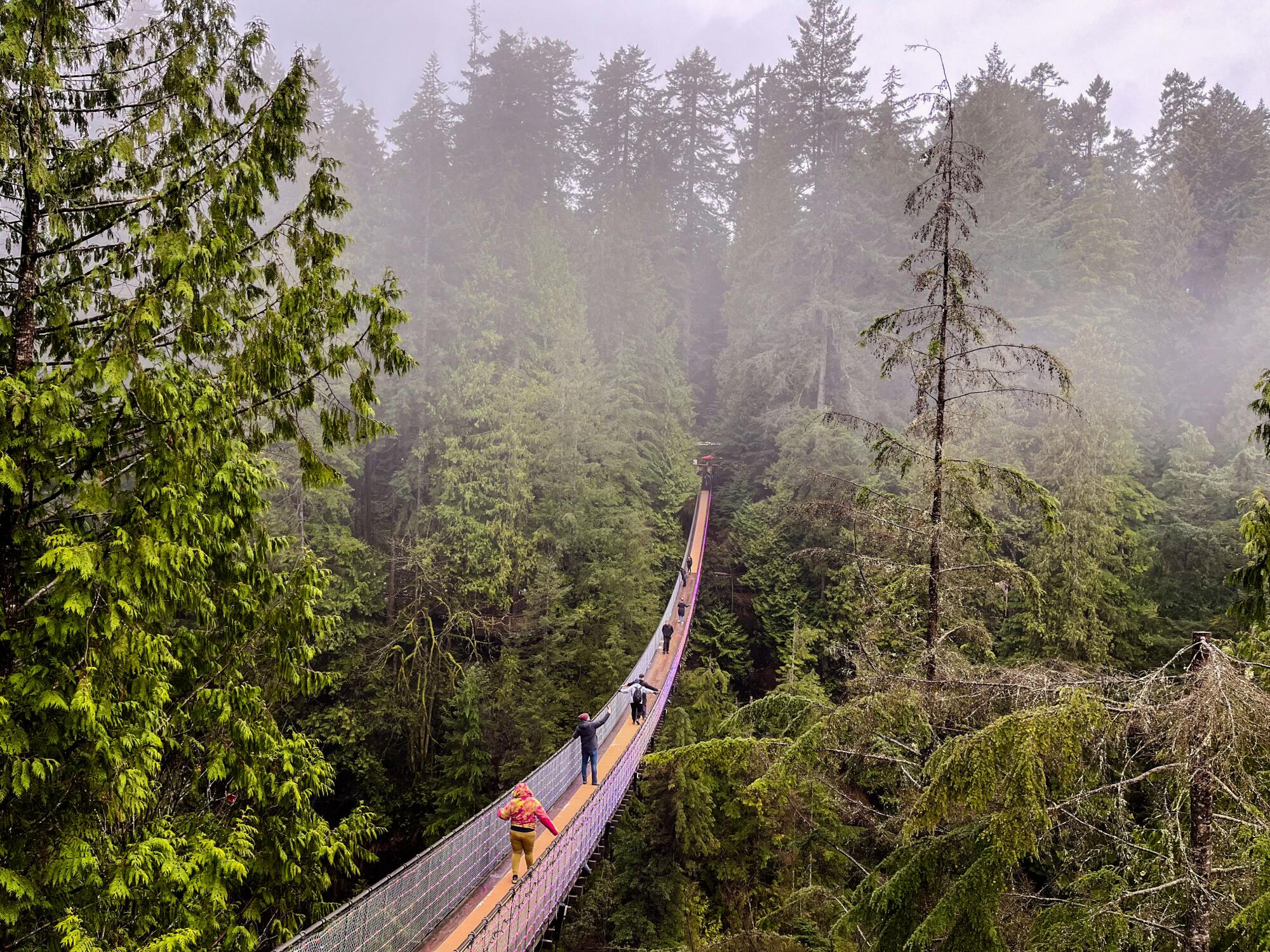

On my first visit, a few years ago, it was raining and the park was packed. I wondered if the bridge would be closed. Nope. Open, and prone to slightly jiggle as I stood 230 feet above the Capilano River, surrounded by tall trees and mist. When I returned in February, it was snowing, the park was nearly empty and the bridge was still open. The vibe was part “Twin Peaks,” part “Indiana Jones and the Temple of Doom.”
1. Badwater in Death Valley
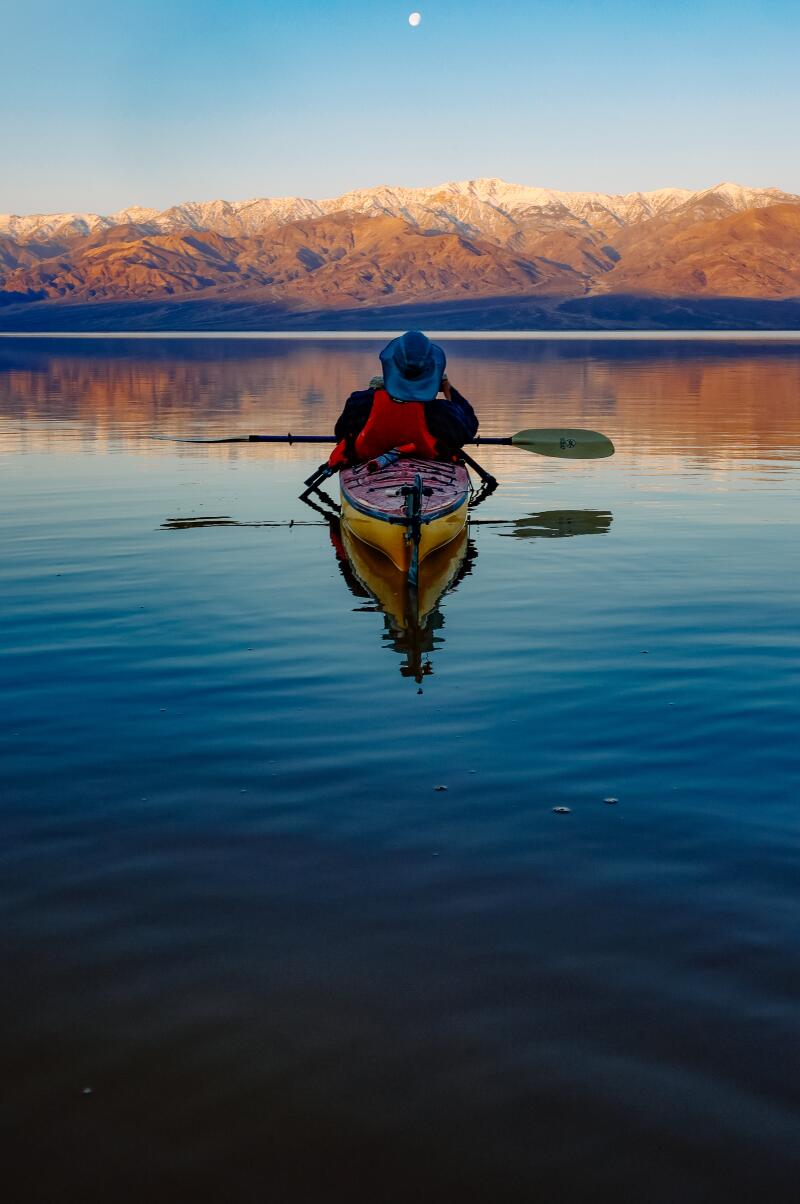
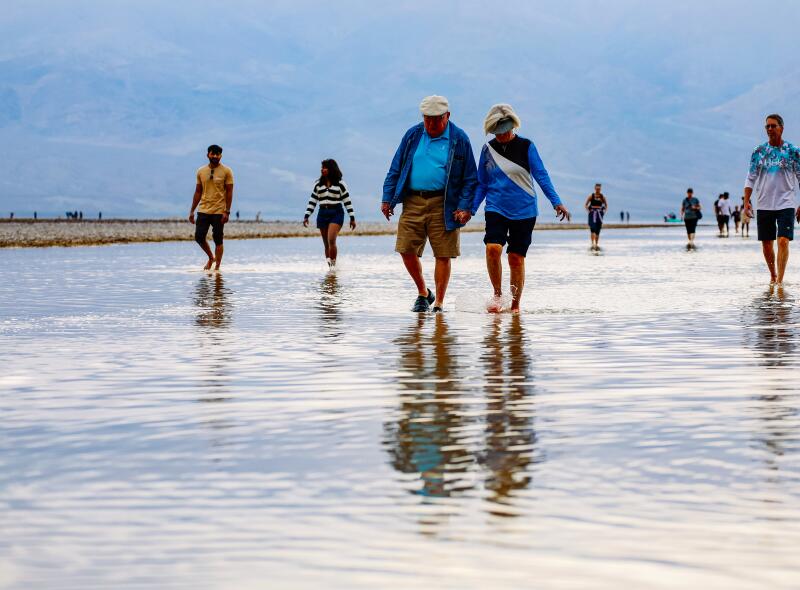
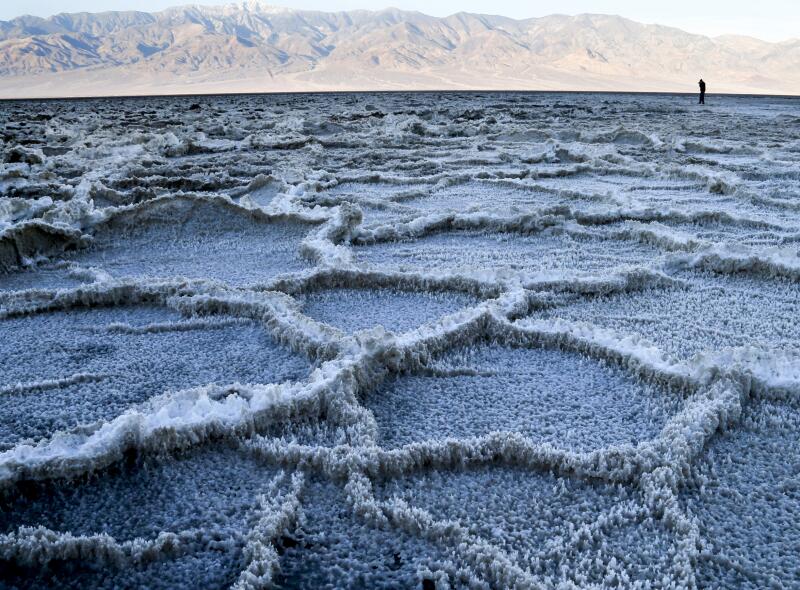
Mike “Mish” Shedlock kayaks the calm waters of Manly Lake at sunrise in Death Valley. (Robert Gauthier / Los Angeles Times) Park visitors kayak, paddle board and wade knee deep in Lake Manly in Badwater Basin. (Robert Gauthier / Los Angeles Times) Unique salt structures form in the Badwater Basin at Death Valley National Park where water combines with the natural salt deposits at 282-feet below sea level, as seen in 2014. (Mark Boster / Los Angeles Times)

Badwater is hot and dry enough to kill you pretty quickly, but as long as you have water to drink, a little shade and a way out, you’ll probably live and have a story to tell. On my first visit, a summer day about 30 years ago, Death Valley was even hotter than usual, around 115 degrees. The power had gone out at our Furnace Creek hotel. Rather than crowd into the marginally cooler hotel pool with scores of young children (and their urine, most likely), I headed with my wife and friends for the vast, flat, salty, dry lake floor of Badwater with a Wiffle ball and bat. The game didn’t last long, but there are photos: Except for our 20th century leisurewear, we looked like biblical figures in the process of being turned to pillars of salt. So last year, when rains washed out roads, closed Death Valley National Park for months, refilled the lake bed and transformed the basin into a great big mirror, I was eager to get back there.
Two months after a storm that dropped a year’s rainfall in a single day, visitors to the national park are encountering a a strange place made stranger — and more majestic.
Within days of the park’s reopening, I got to Badwater for sunrise and came back again at sunset. No Wiffle ball. Just the big sky, the mountains reflected in the lake and a handful of fellow travelers in silhouette at water’s edge. To those bold few who managed to kayak in Death Valley for the three winter weeks that it was possible, I envy you. I don’t know if I’ll ever see that lake again — as of May 1, it was just a few inches deep and shrinking fast — but now I have two layers of Badwater memories to carry with me.
More to Read
Sign up for The Wild
We’ll help you find the best places to hike, bike and run, as well as the perfect silent spots for meditation and yoga.
You may occasionally receive promotional content from the Los Angeles Times.

